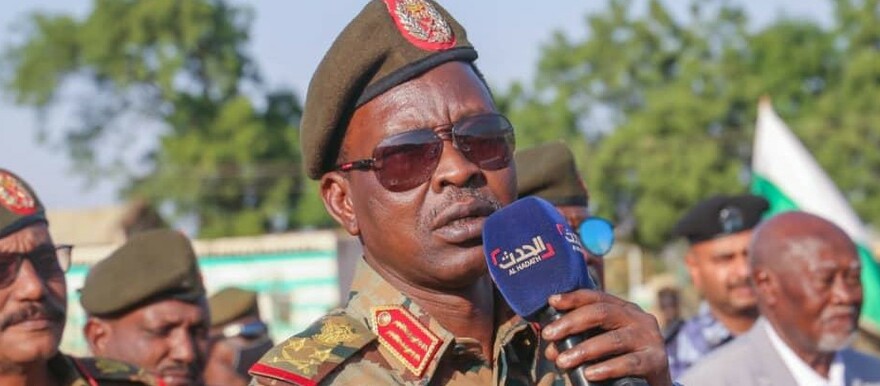The Sudanese army has stated that it will not engage in negotiations or consider a ceasefire with what it deems as “the political wing” of the militia group, the Rapid Support Forces (RSF).
A senior member of the Sudan Armed Forces (SAF) insists that this decision stands firm unless the rebel militia fulfills its commitment outlined in the Jeddah Agreement to vacate citizens’ homes and service institutions.
Lieutenant General Shams al-Din al-Kabbashi, Deputy Commander-in-Chief of the Sudan Armed Forces and member of the Sovereignty Council, emphasized this stance during his address to community activities in White Nile State.
He affirmed that the Sudanese army will persist in its efforts to combat the rebel militia and its allies until every part of Sudan is liberated.
Lt. Gen. Al-Kabbashi clarified, “The army will not shift focus to the political arena until all aspects of the military files are resolved.” He highlighted that the army is proactively taking the lead and making substantial progress across all military operation zones.
Political researcher Abbas Ali has highlighted the growing complexity of solutions in Sudan, attributing it to the ongoing deadlock between the conflicting parties and the failure of regional and international initiatives to achieve resolutions.
Ali emphasized the need for the involved parties to prioritize the country’s welfare and the well-being of its citizens, who are currently grappling with the devastating consequences of the conflict.
He stated, “The parties must prioritize the will of the people for the benefit of the country and its citizens, who are enduring the flames of destruction.”
Since April 2023, Sudan has experienced military clashes between the Sudanese army and the Rapid Support Forces in various areas, resulting in the displacement of millions of children and the loss of thousands of lives. United Nations reports underscore that Sudan is presently facing the highest rates of asylum and internal displacement globally.




